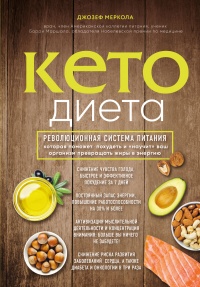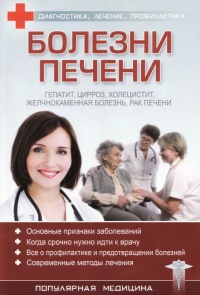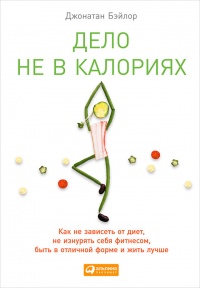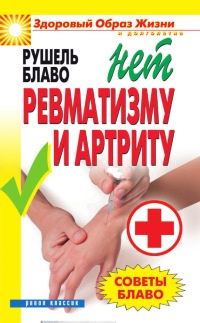Книга Клетка "на диете". Научное открытие о влиянии жиров на мышление, физическую активность и обмен веществ - Джозеф Меркола
Шрифт:
Интервал:
Закладка:
33. P. Leren, “The Effect of Plasma-Cholesterol-Lowering Diet in Male Survivors of Myocardial Infarction: A Controlled Clinical Trial,” Bulletin of the New York Academy of Medicine, 44, no. 8 (1968): 1012-20.
34. S. Dayton et al, “A Controlled Clinical Trial of a Diet High in Unsaturated Fat in Preventing Complications of Atherosclerosis,” Circulation, 40 (1969): II-1-11-63, DOI: 10.1161/01.CIR.40.1S2.II-1.
35. I. D. Frantz et al., “Test of effect of lipid lowering by diet on cardiovascular risk. The Minnesota Coronary Survey,” Arteriosclerosis, 9, no. 1, (January-February 1989):129-35, DOI: 10.1161/01.ATV.9.1.129.
36. O. Turpeinen et al, “Dietary Prevention of Coronary Heart Disease: The Finnish Mental Hospital Study,” International Journal of Epidemiology, 9, no. 2 (1979): 99-118, DOI: 10.1093/ije/8.2.99.
37. “Controlled Trial of Soya-Bean Oil in Myocardial Infarction,” The Lancet, 292, no. 7570 (1968): 693–700, DOI: 10.1016/S0140-6736(68)90746-0.
38. “Multiple Risk Factor Intervention Trial Group: Public Annual Report, Multiple Risk Factor Intervention Trial, June 30, 1975 to July 1, 1976,” Journal of the American Medical Association, 248, no. 12 (1982): 1465-77, https://clinicaltrials.gov/ct2/ show/NCT00000487, accessed 12/2/16.
39. P. W. Siri-Tarino et al., “Meta-analysis of Prospective Cohort Studies Evaluating the Association of Saturated Fat with Cardiovascular Disease,” American Journal of Clinical Nutrition, 91, no. 3 (2010): 535-46, DOI:10.3945/ajcn.2009.27725.
40. R. Chowdhury et al, “Association of Dietary, Circulating, and Supplement Fatty Acids With Coronary Risk: A Systematic Review and Meta-analysis,” Annals of Internal Medicine, 160 (2014): 398–406, DOI: 10.7326/M13-1788.
41. De Souza et al, “Intake of Saturated and Trans Unsaturated Fatty Acids and Risk of 11 Cause Mortality, Cardiovascular Disease, and Type 2 Diabetes.”
42. C. E. Ramsden et al., “Use of Dietary Linoleic Acid for Secondary Prevention of Coronary Heart Disease and Death: Evaluation of Recovered Data From the Sydney Diet Heart Study and Updated Meta-analysis,” BMJ, 346 (2013): DOI: 0.1136/bmj.e8707.
43. TaM >Ke.
44. M. A. Austin et al, “Low-Density Lipoprotein Subclass Patterns and Risk of Myocardial Infarction,” Journal of the American Medical Association, 260, no. 13 (1988):1917-21, DOI: 10.1001/jama.l988.03410130125037.
45. D. M. Dreon et al., “Change in Dietary Saturated Fat Intake Is Correlated with Change in Mass of Large Low-Density-Lipoprotein Particles in Men” American Journal of Clinical Nutrition, 67, no. 5 (1998): 828-36, accessed 12/2/16.
46. K. Gunnars, “Saturated Fat, Good or Bad?” Authority Nutrition, https://authority-nutrition.com/saturated-fat-good-or-bad/, accessed 12/2/16.
47. P. W. Siri-Tarino et al., “Saturated Fat, Carbohydrate, and Cardiovascular Disease,” American Journal of Clinical Nutrition, 91, no. 3 /2010): 502-9, DOI: 10.3945/ ajcn.2008.26285.
Глава 2
1. L. Cordain, “The Nutritional Characteristics of a Contemporary Diet Based Upon Paleolithic Food Groups,” Journal of the American Nutraceutical Association, 5, no. 5, (2002): 15–24.
2. J. J. Meidenbauer, P. Mukherjee, and T. N. Seyfried, “The Glucose Ketone Index Calculator: A Simple Tool to Monitor Therapeutic Efficacy for Metabolic Management of Brain Cancer,” Nutrition & Metabolism, vol. 12 (2015):12. DOL10.1186/ S12986-015-0009-2.
3. R. Agrawal and F. Gomez-Pinilla, “‘Metabolic Syndrome in the Brain: Deficiency in Omega-3 Fatty Acid Exacerbates Dysfunctions in Insulin Receptor Signalling and Cognition,” The Journal of Physiology, 590, no. 10, (2012): 2485, DOI: 10.1113/ jphysiol.2012.230078.
4. J. R. Ifland et al, “Refined Food Addiction: A Classic Substance Use Disorder,” Medical Hypotheses, 72, no. 5, (May 2009): 518-26, DOI: 10.1016/j.mehy.2008.11.035.
5. T. R. Nansel et al., “Greater Food Reward Sensitivity Is Associated with More Frequent Intake of Discretionary Foods in a Nationally Representative Sample of oung Adults,” Frontiers in Nutrition, 3, no. 33, 8/18/2016, DOI: 10.3389/fnut.2016.00033.
6. S. D. Phinney and J. S. Volek, The Art and Science of Low-Carbohydrate Living (Miami, FL: Beyond Obesity LLC, 2011), 10.
7. G. D. Maurer, et al., “Differential Utilization of Ketone Bodies by Neurons and Glioma Cell Lines: a Rationale for Ketogenic Diet as Experimental Glioma Therapy,” BMC Cancer 11 (2011): 315, DOL.10.1186/1471-2407-11-315.
8. R. Sender, S. Fuchs, and R. Milo, “Revised Estimates for the Number of Human and Bacteria Cells in the Body,” PLoS Biology, 14, no. 8 (2016): el002533, DOI: 10.1371/journal.pbio. 1002533.
9. R. Rosedale, “Life, Death, Food and the Disease of Aging,” presented at the American Academy of Anti-Aging in Orlando, Florida, 2011.
10. С. Е. Forsythe et al., “Comparison of Low Fat and Low Carbohydrate Diets on Circulation Fatty Acid Composition and Markers of Inflammation” Lipids, 43, no. 1 (2008): 65–77, DOI: 10.1007/sl 1745-007-3132-7.
11. S. McKenzie, “Yoshinori Ohsumi Wins Nobel Prize for Medical Research on Cells,” CNN.com, October 3, 2016, http://www.cnn.com/2016/10/03/health/ nobel-prize-2016-physiology-medicine-yoshinori-ohsumi/, accessed 12/2/16.
12. K. J. Bough et al., “Mitochondrial Biogenesis in the Anticonvulsant Mechanism of the Ketogenic Diet,” Annals of Neurology, 60 (2006): 223-35, D01:10.1002/ana.20899.
13. P. J. Cox, K. Clarke, “Acute Nutritional Ketosis: Implications for Exercise Performance and Metabolism,” Extreme Physiology & Medicine, 3 (2014): 1, DOI: 10.1186/2046-7648-3-17.
14. О. E. Owen et al., “Liver and Kidney Metabolism During Prolonged Starvation,” Journal of Clinical Investigation, 48, no. 3 (1969): 574-83.
15. M. Akram, “A Focused Review of the Role of Ketone Bodies in Health and Disease,” Journal of Medicinal Food, 16, no. 11 (November 2013): 965-67, DOI: 10.1089/jmf.2012.2592.
16. Там же.
17. Phinney and Volek, The Art and Science of Low-Carbohydrate Living, 10.
18. Interview with Jeff Volek, Ph.D., http://articles.mercola.com/sites/articles/archive/2016/01/31/high-fat-low-carb-diet-benefits.aspx, accessed 12/2/16.
19. J. C. Newman and E. Verdin, “(3-hydroxybutyrate: Much More Than a Metabolite,” Diabetes Research and Clinical Practice, 106, no. 2 (2014): 173-81, DOI: 10.1016/j. diabres.2014.08.009.
20. A. Paoli et al., “Ketogenic Diet in Neuromuscular and Neurodegenerative Diseases,” BioMed Research International, 2014 (2014), DOL10.1155/2014/474296.
21. M. A. McNally and A. L. Hartman, “Ketone Bodies in Epilepsy,” Journal of Neurochemistry, 121, no. 1 (2012): 28–35, DOI: 10.1111/j.l471-4159.2012.07670.x.

























